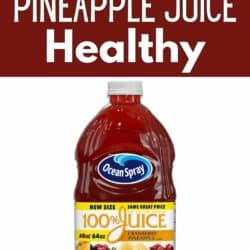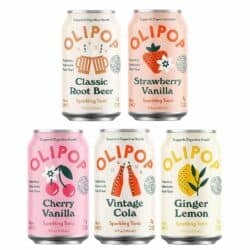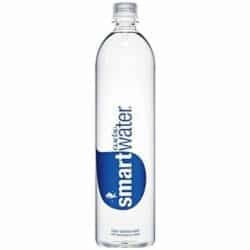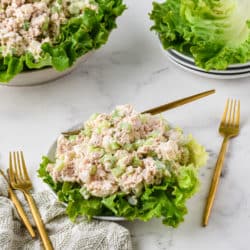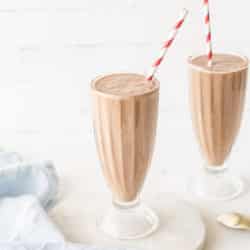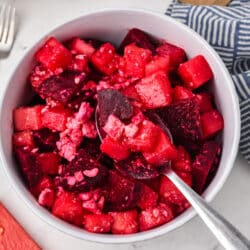Is Cranberry Pineapple Juice Healthy (Nutrition Pros and Cons)?
In this blog post, I’ll review the question of whether Cranberry Pineapple Juice is healthy or not? Find out what the nutrition pros and cons of this product are, plus some other options to consider.
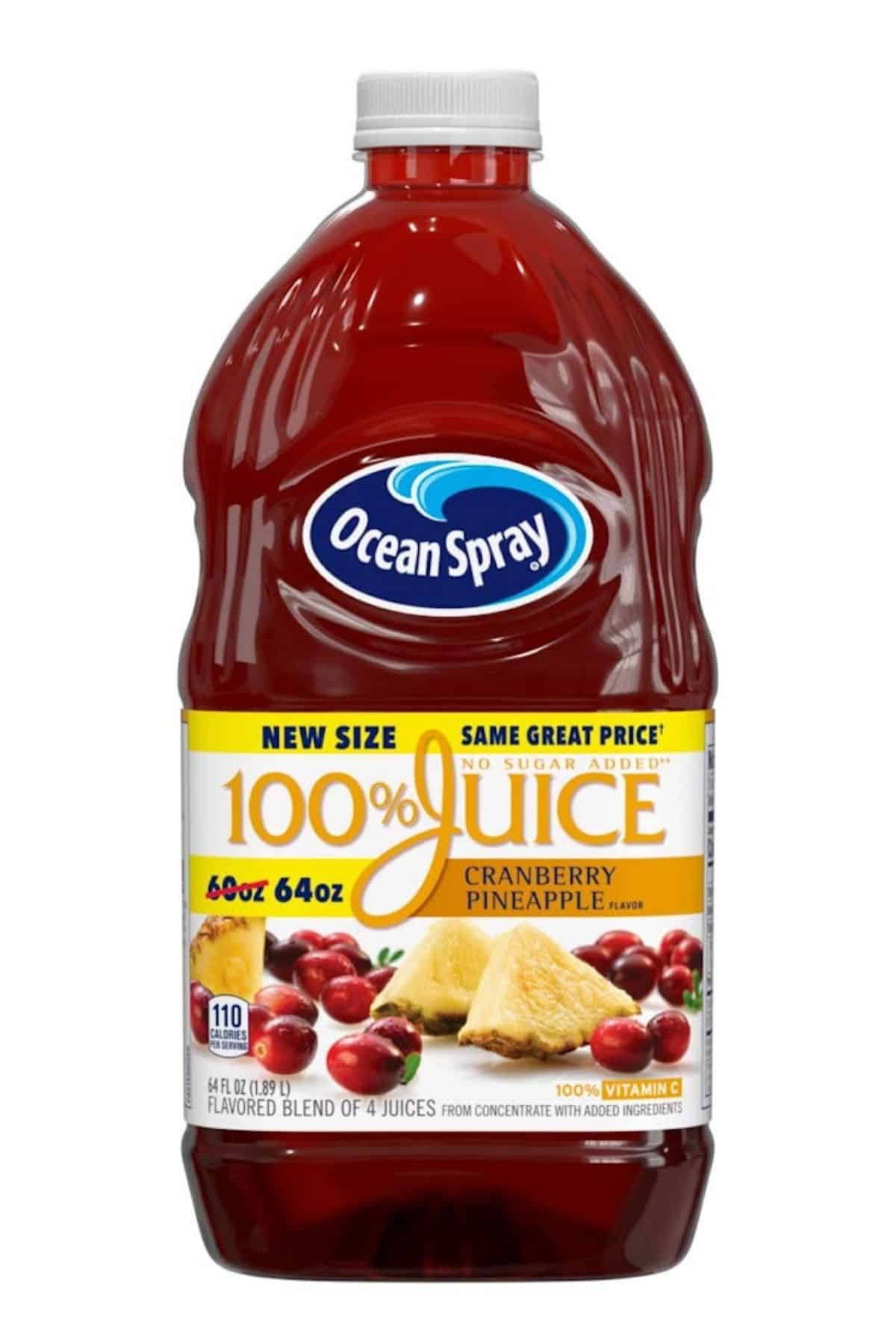
Cranberry Pineapple Juice Facts
Cranberry pineapple juice is a refreshing drink that combines the tartness of cranberries with the natural sweetness of ripe pineapple.
Ideal for anyone who enjoys that delicious sweet and sour flavor profile, it can be consumed just as it is or used as a base for all sorts of healthy drinks, from smoothies to non-alcoholic mocktails.
The leading manufacturer of cranberry pineapple juice is Ocean Spray, best known for its fresh cranberries and processed cranberries. Its Pineapple Cranberry juice contains 100% juice, with each single serving containing the equivalent of one cup of fruit and 100% of your daily value of Vitamin C. It also contains natural flavorings, colorings, and emulsifiers.
Although no sugar is added to Ocean Spray’s cranberry pineapple juice, its sugar level is still fairly high because of the amount of natural sugar in the fruit.
Another high-quality alternative to Ocean Spray’s cranberry and pineapple juice is Lakewood’s Organic Pineapple Cranberry. Unsweetened and free from preservatives, it’s a little higher in calories but also a richer source of certain nutrients, particularly B vitamins and the essential trace element manganese. It uses organic cranberry juice and organic pineapple juice.
Cheaper versions of cranberry pineapple juice are available from other brands, although you may find they contain more water and/or added sugar.

Cranberry Pineapple Juice Ingredients
Certain ingredients are used in most brands of cranberry pineapple juice that you can buy at the grocery store.
Let’s review these common ingredients so you can make a decision whether they are healthy or not for you.
Cranberry Juice
This is usually a mixture of water and cranberry juice concentrate. It gives the juice its attractive red color and uniquely tart flavor.
Cranberries have lots of scientific studies around their antioxidant content. The benefits of cranberry juice can range from reducing colon cancer, improving weight loss, fighting h. pylori, reducing menstrual flow, and aiding the reproductive system. The studies are usually based on the fresh fruit, though, and not the juice.
Pineapple Juice
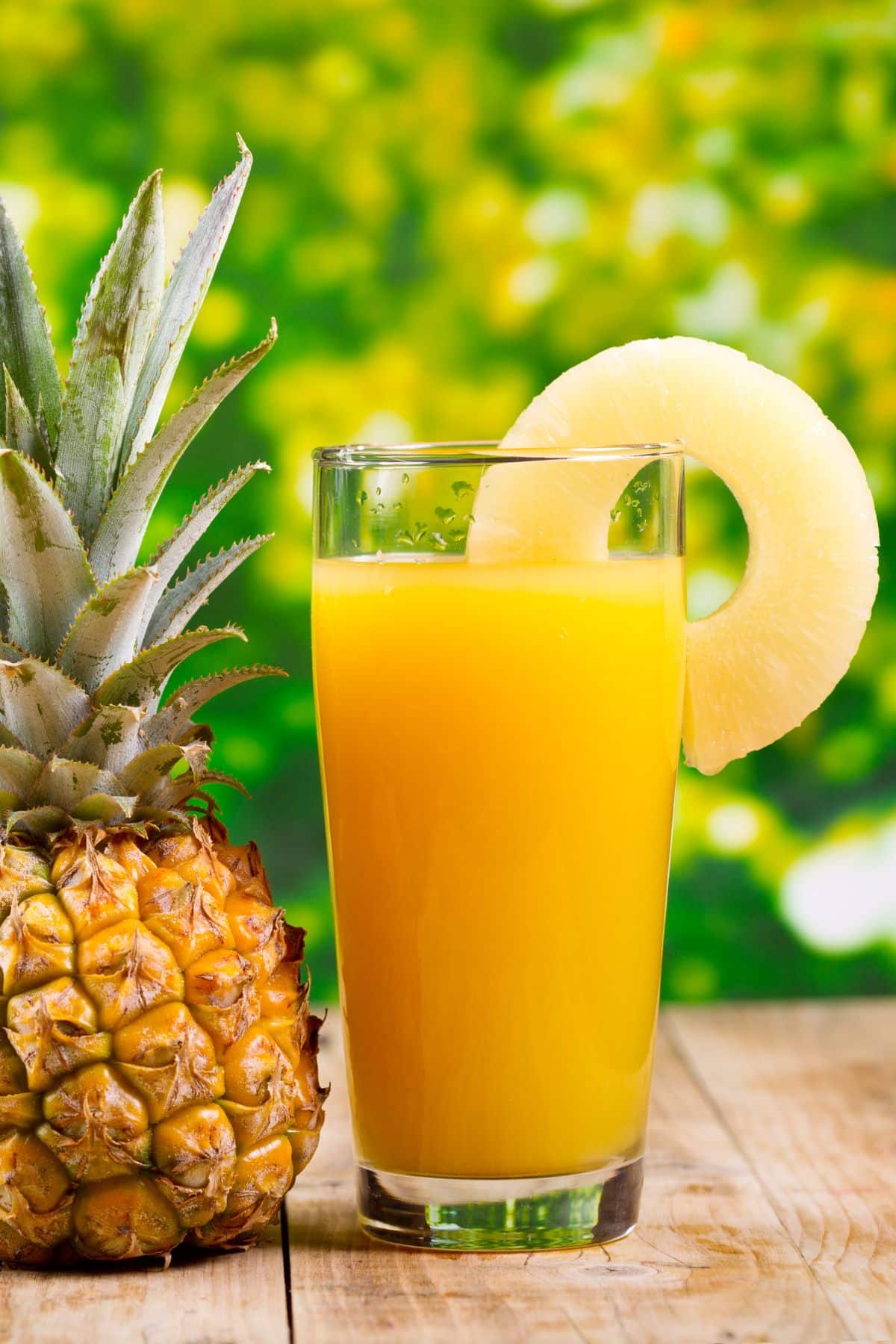
Made from combining water with pineapple juice concentrate or fresh pineapples, this balances the tartness of the cranberries and adds extra nutrients.
Apple Juice
Some brands – including Ocean Spray – include apple juice in their recipe.
Made from a mixture of water and apple juice concentrate, it provides further natural sweetness to counteract the tartness of the cranberries. It’s also used because it has a mild, neutral flavor that complements the other fruits but doesn’t overpower them.
Grape Juice
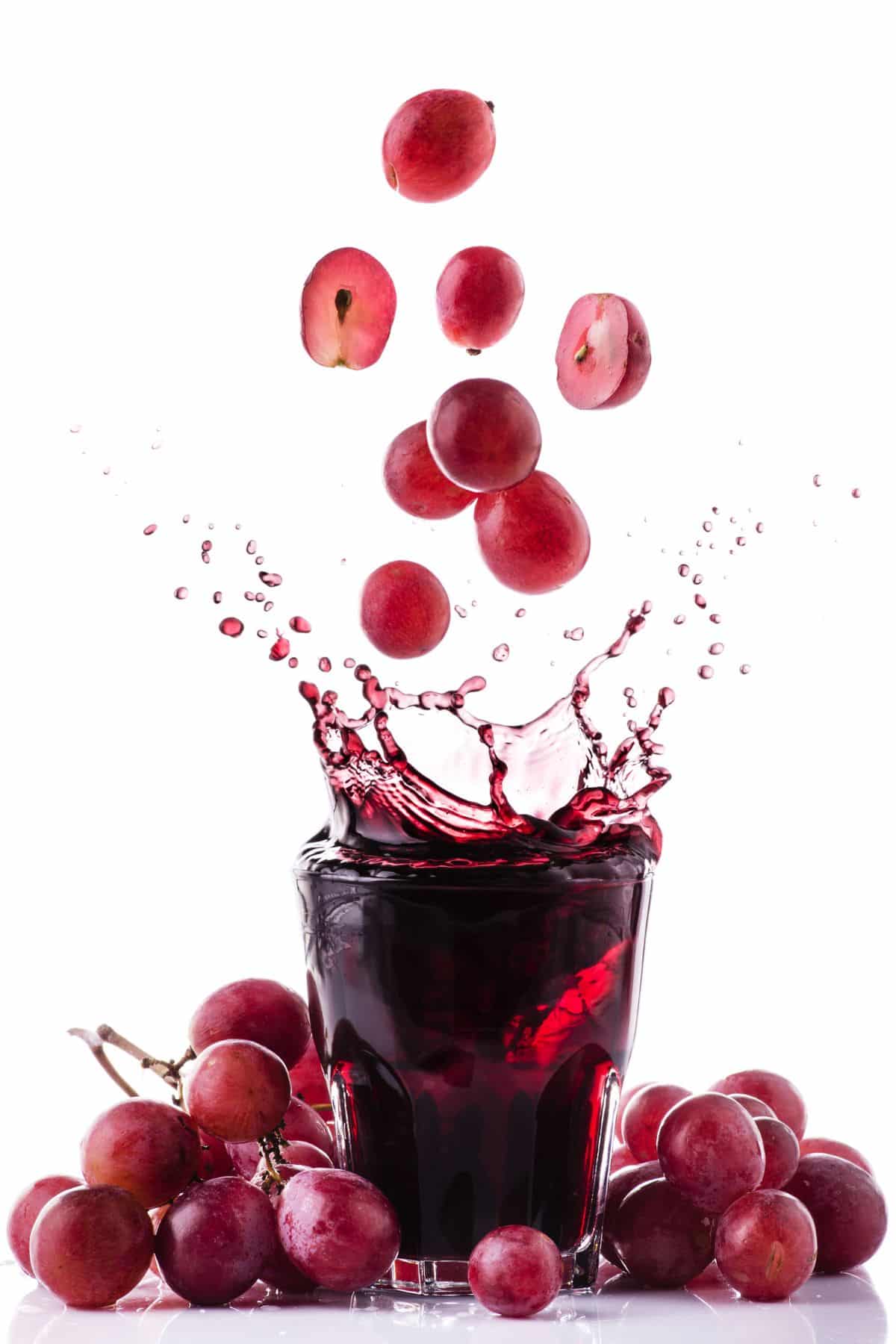
Another ingredient commonly found in cranberry pineapple juice, grape juice is naturally sweet and provides a delicious flavor, without the need for added sugar or sweeteners.
Natural Flavors
These are not usually specified but are defined by the FDA as substances that are extracted, distilled, or derived in some other way from natural sources like plants. However, under current regulations, natural flavors can include certain preservatives and solvents if the product is inorganic.
The restrictions of natural flavors used in organic products are much tougher, so organic cranberry pineapple juice – like the version produced by Lakewood – may be a better choice.
Ascorbic Acid
Also known as vitamin C, ascorbic acid is added to juice for several reasons. Because it is an antioxidant, it slows down the oxidation of the juice, keeping it tasting fresh and looking colorful for longer.
It also has a low PH value, so it acts as a preservative by preventing the growth of microbes that might cause the juice to spoil. It has a tart taste that brings a delicious citrus flavor to the juice and – more importantly – it significantly boosts the vitamin C content of any product it is used in.
Fumaric Acid
This naturally occurring acid has a fruity flavor, so you’ll often see it listed as an ingredient in fruit juice.
It’s also an anti-microbial agent, meaning it helps protect against spoilage.
Vegetable Concentrate
You will usually find this quite low on the list of ingredients.
This is because a small amount is added to cranberry pineapple juice to enhance its color rather than for its flavor.
Other Ingredients
Cranberry pineapple juice typically contains other ingredients like gum arabic and ester gum.
These are used to ensure that the ingredients remain well mixed and give the juice a pleasant mouthfeel.
Nutrition Pros
The exact nutritional benefits of cranberry pineapple juice depends on the formulation, so there may be a little variation from brand to brand.
In general, however, it tends to be high in vitamin C, often providing 100% of your daily requirements. Vitamin C is important in many ways, helping your body heal and form muscle tissue while protecting your cells against free radicals – harmful molecules that can lead to heart disease and cancer. This makes cranberry pineapple juice a great option if you struggle to eat enough fresh fruits and vegetables to meet your vitamin C needs.
The cranberries in the juice, meanwhile, are excellent for the health of the urinary tract. They are believed to help block bacteria from adhering to the urinary tract walls, thereby preventing infections, particularly urinary tract infection.
Depending on the juice ratio used in the formulation, cranberry pineapple juice may also provide you with the enzyme bromelain. Naturally present in pineapple, it has anti-inflammatory properties and can help with digestion and digestive health.
Pineapple is a good source of manganese, too, which helps build bones, supports the immune system, and works with vitamin K to help heal wounds.
In addition to these potential health benefits, cranberry pineapple juice is low in fat and great for keeping you hydrated.
Nutrition Cons
Even though some brands of cranberry pineapple juice are free from added sugar, they still have a relatively high sugar content thanks to the natural sugars they contain.
Subsequently, they are quite high in calories, with the Ocean Spray brand, for example, containing approximately 110 calories per serving.
Additionally, some brands do contain added sugars, so it’s important to check the labeling to be sure.
Another drawback of cranberry pineapple juice is that it is not a significant source of dietary fiber. It’s important to consume plenty of whole fruits and vegetables to make sure you’re getting the dietary fiber you need.
Nutrition FAQs
Cranberry pineapple juice offers several health benefits. It keeps you hydrated, is rich in vitamin C, and also contains varying amounts of bromelain and manganese to support digestion and your immune system. It’s good for your urinary tract, too, and can help prevent infections.
But it’s important to remember that it is relatively high in calories and that some versions may contain added sugars. A good alternative is to look for an unprocessed, unsweetened variety made with organic ingredients. If you find the flavor a little too tart, then consider using stevia or a little honey to add sweetness.
Finally, remember that – like all fruit juices – cranberry pineapple juice is low in dietary fiber and that it’s important to also include plenty of whole fruit in your diet.
Yes, you can easily make your own healthy cranberry pineapple juice, either by combining store-bought bottles of unsweetened cranberry and pineapple juices or by juicing the fruits yourself.
Homemade cranberry pineapple juice has several benefits:
If you use organic produce, you can be sure it’s free from pesticides or other harmful additives.
You can control the water and sugar content, foregoing added sugars and using natural alternatives like stevia instead.
You can be sure it is made only with cranberry and pineapple juices.
You can adjust the recipe to your taste, adding spices like cinnamon or fresh ginger for a boost of flavor and some extra nutrients, too.
More Beverage Product Reviews You Might Like
Conclusions
Cranberry pineapple juice is – in general – a healthy drink, supplying you with lots of vitamin C and helping support your digestive and immune systems. It’s also low in fat and good for hydration, although some versions may contain added sugars which contribute to a higher calorie content.
Ideally, pick an unprocessed, unsweetened juice made from organic fruits, or make your own version at home so that you are in control of the sugar and other ingredients.
About the Author: Carrie Forrest has a master’s degree in public health with a specialty in nutrition and is a certified holistic nutritionist. She is a top wellness and food blogger with over 5 million annual visitors to her site. Carrie has an incredible story of recovery from chronic illness and is passionate about helping other women transform their health. Send her a message through her contact form.
Note: this post is for informational purposes only and is not intended as medical advice. Please consult your healthcare provider for recommendations related to your individual situation.


